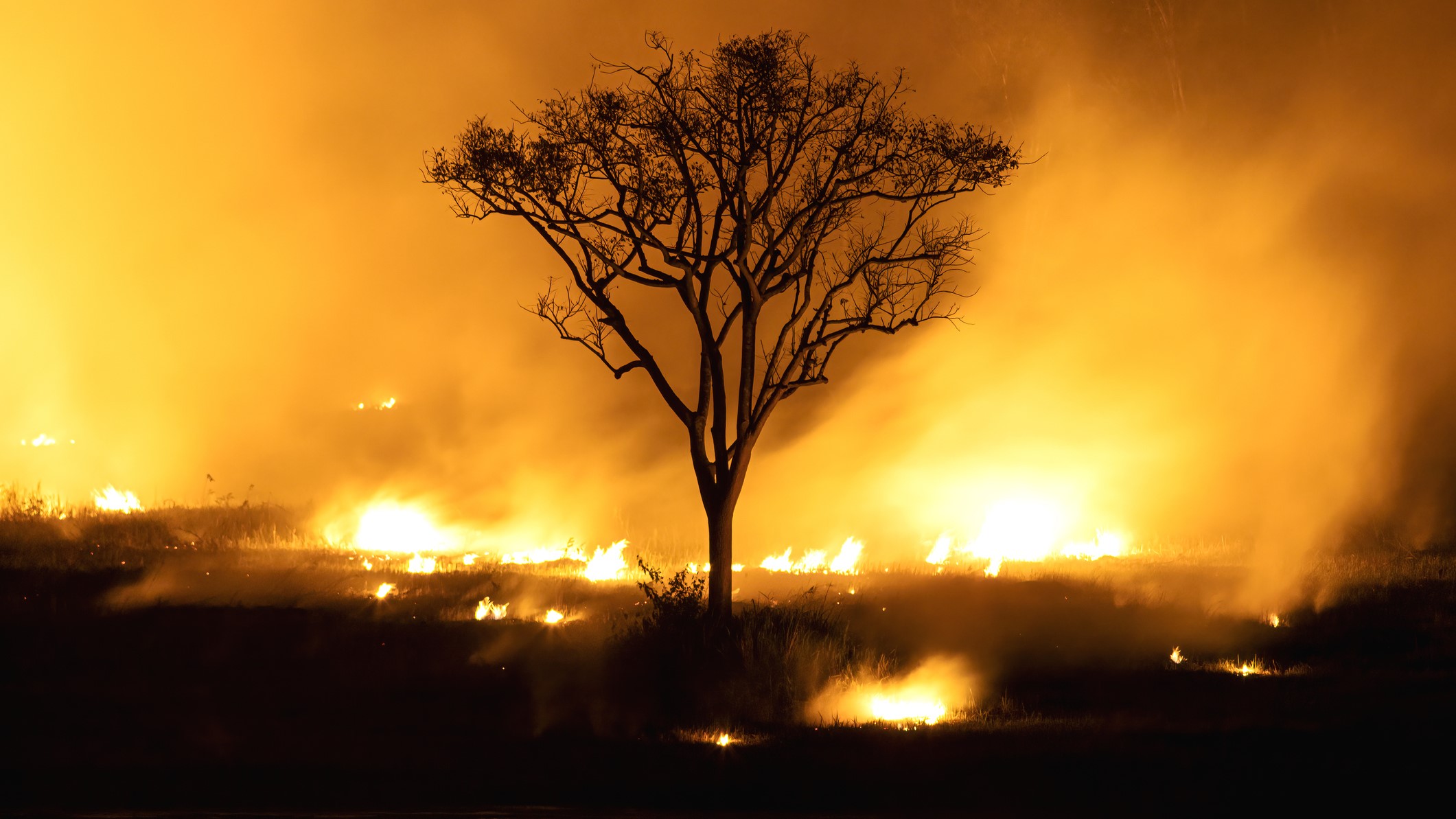The 'safe' threshold for global warming will be passed in just 6 years, scientists say
New research suggests we have just six years left to limit global warming to 1.5 degrees Celsius, and two decades to keep temperatures below the 2 C threshold in the Paris Agreement.

Global carbon emissions are on track to exceed safe limits by 2030 and unleash the worst effects of climate change, new research suggests. This means we have just six years to change course and dramatically reduce greenhouse gas emissions.
A new estimate of our remaining carbon budget — the amount of carbon dioxide we can produce while keeping global temperatures below a dangerous threshold — indicates that, as of January, if we emit more than 276 gigatons (250 metric gigatons) of CO2 we will hit temperatures 1.5 degrees Celsius (2.7 degrees Fahrenheit) above preindustrial levels. The researchers found that if emissions continue at the current rate, we will cross this threshold before the end of the decade, according to a study published Monday (Oct. 30) in the journal Nature Climate Change.
"Our finding confirms what we already know — we're not doing nearly enough to keep warming below 1.5 degrees C," study lead author Robin Lamboll, a researcher at the Center for Environmental Policy at Imperial College London, said in a statement. "We can be ever more certain that the window for keeping warming to safe levels is rapidly closing."
In 2015, 196 world leaders signed the Paris Agreement, a legally binding treaty on climate change that aims to keep global average temperature below 2 C (3.6 F) above preindustrial levels. The agreement stressed that limiting global warming to 1.5 C would help prevent the worst impacts of climate change.
Earlier this year, a UN report warned that temperatures may soon periodically exceed the dangerous 1.5 C threshold, but the new study refers to long-term warming.
Related: Catastrophic climate 'doom loops' could start in just 15 years, new study warns
Humans currently emit nearly 40 gigatons of CO2 into the atmosphere every year, according to the statement. Without a reduction in these emissions, our remaining carbon budget to stay below 1.5 C will be exhausted within the next six years.
Sign up for the Live Science daily newsletter now
Get the world’s most fascinating discoveries delivered straight to your inbox.
"This does not mean that 1.5 degrees C will be achieved on that timescale," Benjamin Sanderson, research director at the Center for International Climate and Environmental Research in Norway who was not involved in the study, wrote in an accompanying Nature News & Views article. There is a time lag between the release of emissions and the warming effects being felt, according to the article, meaning record-breaking temperatures in recent months and years result largely from historical emissions.
The new study is based on data used in a recent report by the Intergovernmental Panel on Climate Change, but Lamboll and colleagues revised the methods to account for the latest emissions and for historical aerosol emissions. Aerosols are small particles suspended in the air that can reflect sunlight and can cool the climate, partially offsetting the warming effects of greenhouse gases.
The revised estimate halves the remaining carbon budget to keep warming below 1.5 C from 550 gigatons (500 metric gigatons) of CO2 to 276 gigatons. The team also calculated that we have 1,323 gigatons (1,200 metric gigatons) of CO2 left to emit before we breach the Paris Agreement's central limit of 2 C — a budget that will be exhausted within the next two decades if no steps are taken to reduce emissions, according to the statement.
These estimates come with large uncertainties linked to the effects of other greenhouse gases, such as methane. It's also unclear how various parts of the climate system will respond to rising temperatures, according to the statement. Increased vegetation growth in certain regions could absorb large amounts of CO2 and offset some warming, for instance, while changes in ocean circulation and melting ice sheets could accelerate warming.
These uncertainties emphasize the need to rapidly cut emissions, Lamboll said. "The remaining budget is now so small that minor changes in our understanding of the world can result in large proportional changes to the budget," Lamboll said. "Every fraction of a degree of warming will make life harder for people and ecosystems."

Sascha is a U.K.-based staff writer at Live Science. She holds a bachelor’s degree in biology from the University of Southampton in England and a master’s degree in science communication from Imperial College London. Her work has appeared in The Guardian and the health website Zoe. Besides writing, she enjoys playing tennis, bread-making and browsing second-hand shops for hidden gems.









